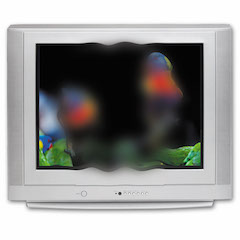Macular degeneration
Macular degeneration is one of the leading causes of blindness and low vision in Australia.
Age related macular degeneration (AMRD) is the most common form of macular degeneration; however there are other forms that impact people during the earlier stages of life.
The impact of macular degeneration varies from person to person, both in terms of the level of vision loss a person experiences and the speed at which their vision deteriorates.
There is currently no cure for vision loss as a result of macular degeneration, however there are a number of treatments available that can reduce its impact.
What is macular degeneration?
Macular degeneration refers to the group of degenerative diseases of the retina that cause progressive loss of central vision.
AMRD is the leading cause of blindness and low vision in Australians aged over 40 and can be split into two categories, either wet or dry.
Wet macular degeneration is the result of choroidal blood vessels growing in the retina. These cells leak blood and fluid into the retina, which results in scarring and vision loss.
Vision loss from wet macular degeneration can be both rapid and severe, with people known to lose a significant portion of their vision overnight.
Dry macular degeneration occurs when retinal pigment epithelial break down. As those cells break down they produce a by-product known as drusen, which builds up and begins to impact vision. Unlike wet macular degeneration, the dry form of the condition uses results in a more gradual deterioration of vision, however dry macular degeneration can become wet macular degeneration.
Stargardt Disease is the most common form of juvenile macular degeneration and typically appears in people before the age of 20. Stargardt Disease is also the result of the death of photoreceptor cells, with vision loss from the disease occurring gradually.
How does macular degeneration impact your vision?
Macular degeneration impacts central vision, with the level of vision loss varying from person to person.
As the degeneration of the macular occurs, individuals will notice their central vision becoming blurred or otherwise distorted or disappearing completely.
Macular degeneration can also result in a dimming of a person’s colour vision.
In some cases, people who live with macular degeneration can also experience hallucinations as a results of Charles Bonnet Syndrome which occurs when the brain substitutes memories into the area of vision that has deteriorated.
What is the cause of macular degeneration?
There is currently no known cause of AMRD.
There is some suggestion that ultraviolet light from the sun may contribute to AMRD, however that has yet to be proven. There is also some thought that trans fatty acids may contribute to the condition, however that has not been proven either.
Unlike AMRD, Stargardt Disease is an inherited condition and can be passed on to a child when both parents carry the gene for the disease.
Cure or treatment?
There is currently no cure for macular degeneration, be it AMRD or juvenile forms like Stargardt Disease.
Thought there is no cure, there are some measures that can slow the impact of AMRD.
For people with dry AMRD, dietary changes to increase their intake foods such as green vegetables and vitamin and mineral supplements can help to reduce the amount of vision loss they experience.
The impact of wet macular degeneration can also be managed to some extent through the use of injections and laser treatment.
Diagnosis
Given that there is no complete cure for macular degeneration early diagnosis of extremely important when it comes to treating macular degeneration.
Elderly people are encouraged to schedule regular vision assessments, while anybody who notices a change in their vision should seek assistance.
Amsler Grids are often used in the diagnosis of macular degeneration. Eye specialists recommend elderly people place a grid on their fridge or somewhere else around the house to help them track any changes in their vision.
There are also more specialised methods such as the use of eye drops and special lenses available to eye specialists to help them test for macular degeneration.











